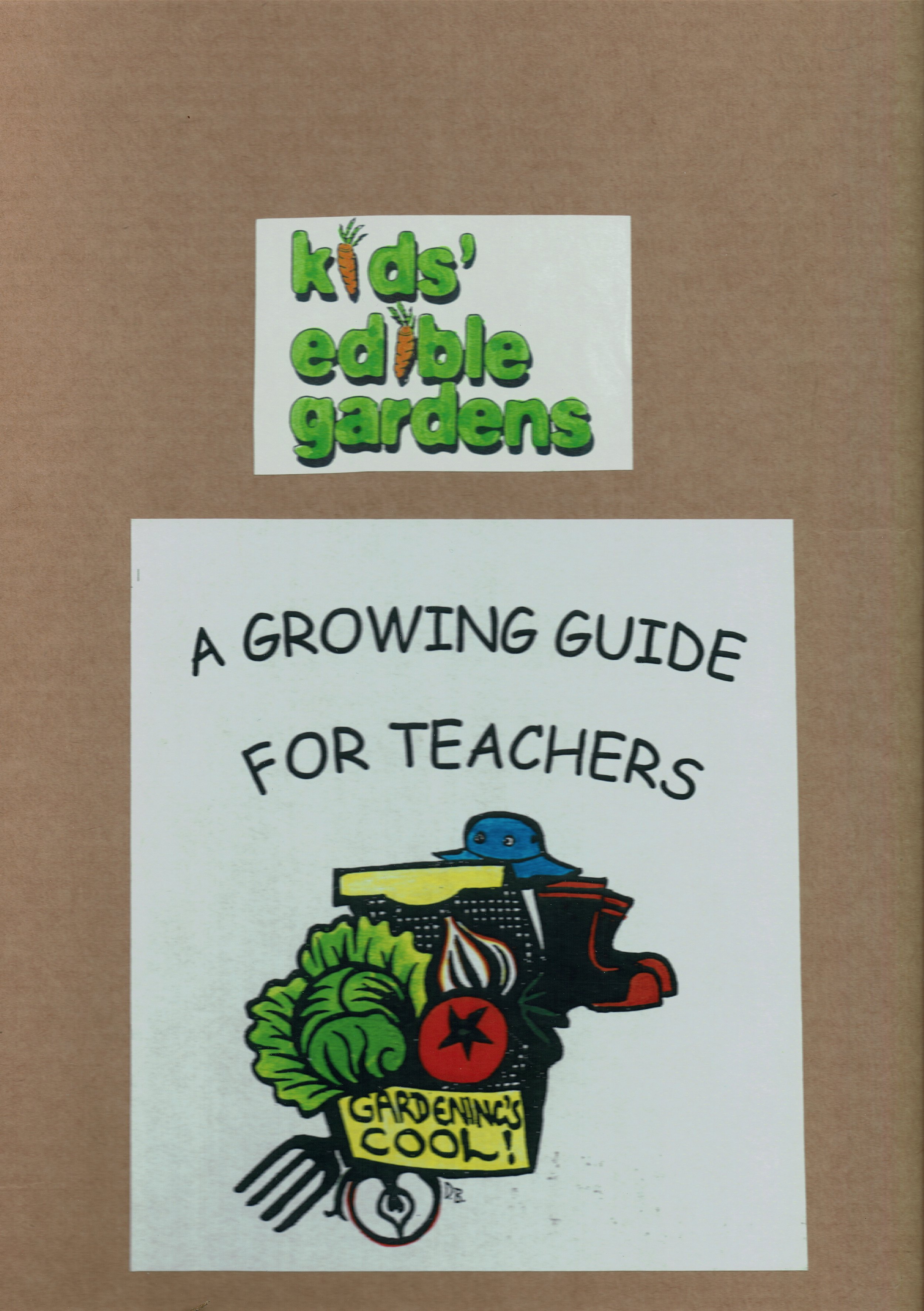The Kids Edible Gardens Growing Guide for Teachers has been developed for primary teachers to help them develop a clearer understanding of how the garden project can be a valuable place for outdoor learning and be integrated with classroom learning.
The Kids Edible Gardens Growing Guide for Teachers was published in 2000. It has been developed for primary teachers to help them develop their understanding of how an edible garden project can be a valuable place for outdoor learning and how the food garden can be integrated with classroom learning.
The guide has been created as a tool, to be used when it is felt to be appropriate by individual staff members and garden facilitators. It outlines the specific topics that will be covered each term by the garden facilitators and gives suggestions of corresponding classroom activities.
The guide also provides a framework detailing the essential knowledge, skills and attitudes that students will gain by being part of the project, and links these with the essential learning areas, skills and attitudes outlined in the Guidelines for Environmental Education in New Zealand Schools (1999). Teachers will therefore be able to use the context of the edible garden project to aid student’s learning in other curriculum areas.
Acknowledgements Lily White, Ami Kennedy, Meagan Bonsell, Rachael Sykes, Ruth Greenaway, Stephanie Boot and Toby Johnson.
The Kids Edible Gardens Guide for Early Childhood Teachers was published in 2002.
The guide was created as a tool, to be used when it is felt appropriate by individual staff members. It outlines the specific topics that can be included in the centre’s program and gives suggestions of appropriate experiences.
The guide also provides a framework detailing the essential knowledge, skills and attitudes that children will gain by being part of the project, and links these with the learning outcomes as outlined in Te Whāriki. Teachers will therefore be able to use the context of the edible garden project to support children’s learning and development across the curriculum.
Acknowledgements
Ami Kennedy, Jocelyn Wright, Colleen Lockie, Zoe Rodgers, Maxine Sleeman, Grace bilham, Raena Lopas, Elizabeth Smeaton and Pat Robertson.



